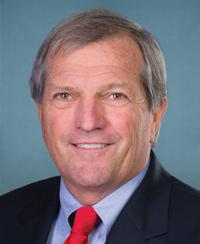0
Breaking the Gridlock Act
1/4/2025, 11:17 AM
Summary of Bill HR 626
One of the main provisions of the Breaking the Gridlock Act is the establishment of a bipartisan commission tasked with identifying areas of common ground between Democrats and Republicans on key policy issues. This commission would be composed of members from both parties and would work to develop consensus-based solutions to these issues.
Additionally, the bill includes provisions aimed at increasing transparency and accountability in government decision-making. This includes requirements for public disclosure of campaign contributions and lobbying activities, as well as measures to prevent conflicts of interest among elected officials. Furthermore, the Breaking the Gridlock Act includes provisions to streamline the legislative process and reduce the influence of special interests in government decision-making. This includes measures to limit the use of filibusters and other tactics that can be used to block legislation, as well as requirements for greater disclosure of the sources of funding for political campaigns. Overall, the Breaking the Gridlock Act is aimed at promoting bipartisanship and cooperation in government decision-making, with the goal of breaking through the political gridlock that has often stymied progress on key policy issues. The bill has garnered support from members of both parties and is currently being considered by Congress for passage into law.
Congressional Summary of HR 626
Breaking the Gridlock Act
This bill addresses a wide variety of issues, ranging from raising grandchildren to earthquake hazards reduction, to underrepresented groups in cancer trials to telehealth, and fighting Boko Haram in Nigeria.
Specifically, the bill establishes a Federal Task Force to Support Grandparents Raising Grandchildren.
With respect to earthquake hazards reduction, the bill
- reauthorizes the National Earthquake Hazards Reduction Program;
- reduces the frequency of reporting by the Interagency Coordinating Committee on Earthquake Hazards Reduction;
- modifies the responsibilities of the Federal Emergency Management Agency (FEMA), the U.S. Geological Survey, and the National Science Foundation; and
- directs the Government Accountability Office (GAO) to review federal earthquake hazard risk reduction efforts.
The bill also (1) reauthorizes the Nonprofit Security Grant Program, and (2) restores certain amounts withheld for tax purposes from severance payments to veterans with combat-related injuries.
The GAO must review actions federal agencies have taken to address barriers to participation in federally funded cancer clinical trials by populations that have been traditionally underrepresented in such trials.
The Department of State and the Department of Defense must jointly develop and submit to Congress a five-year strategy to help enable the government of Nigeria, members of the Multinational Joint Task Force to Combat Boko Haram authorized by the African Union, and relevant partners to counter the regional threat of Boko Haram.
The bill makes supplemental appropriations for the Telehealth Resource Center of the Federal Office of Rural Health Policy of the Office for the Advancement of Telehealth.
